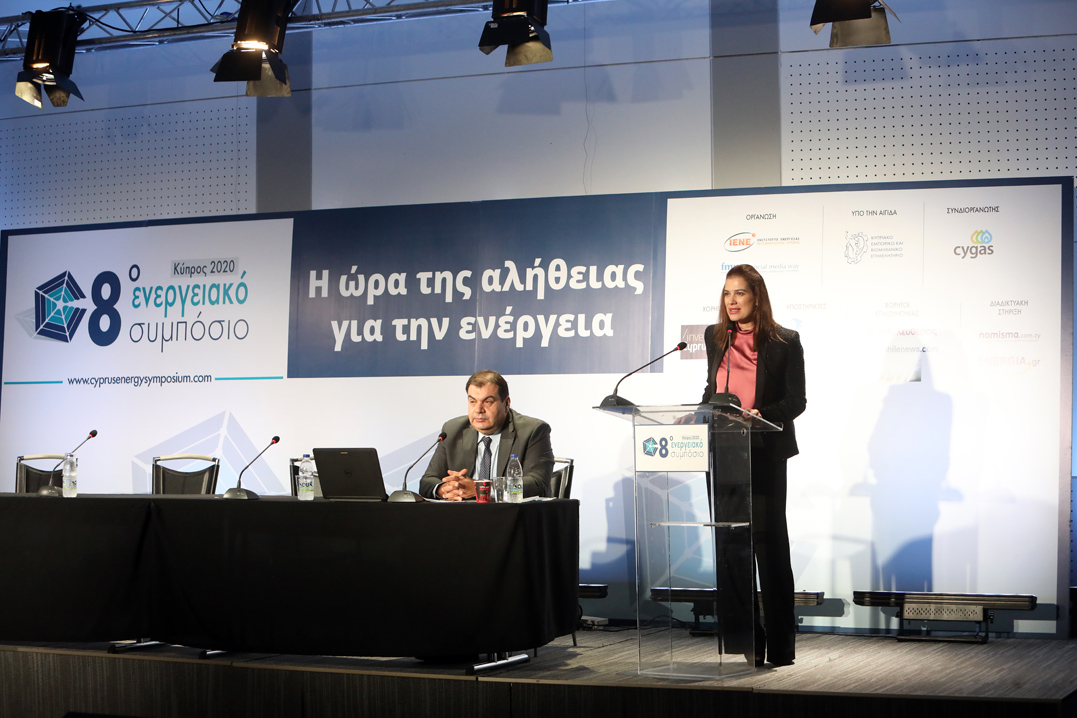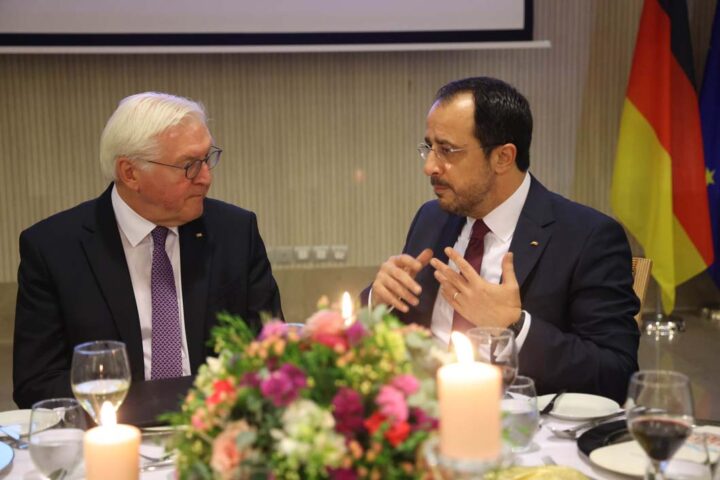Cyprus aims to become ‘climate neutral’ in 30 years by opening the electricity market, exploiting its natural gas resources, and becoming a major clean energy hub.
Speaking at the 8th Energy Forum in Nicosia, President Nicos Anastasiades said that despite the pandemic slowing exploration plans worldwide with demand for oil and gas dropping, Cyprus’s energy partners will resume their drilling plans in the latter part of 2021.
He added that oil majors, such as Chevron that took over Noble Energy’s offshore prospect, have committed to exploit their resources and pump natural gas by a subsea pipeline to Egypt’s Idku terminal, and from there for export.
However, both Anastasiades and his Energy Minister, Natasa Pilides, emphasised the need to diversify the island’s energy mix, to incorporate all three pillars of the national strategy.
The first is to open the local electricity market by mid-2022 to end dependence on conventional fuels and meet emission targets.
The second is to enhance the electricity interconnectors with neighbouring countries to end the island’s energy isolation by the end of 2023, and the third is to bring natgas exploration and exploitation in the Exclusive Economic Zone back on track.
“Considering the recommendations of the European Union’s ‘Green Deal’ that provides for climate neutrality by 2050, our aim is for the gradual transition of Cyprus to green energy and a cyclical economy.”
Anastasiades was addressing inhouse and online delegates at the conference organised by the Institute of Energy for South East Europe (IENE) and FMW Media Way.
He added that his administration is trying to simplify licensing for renewable energy sources (RES) projects through a one-stop centre with 223 RES projects being implemented, combined with the net metering platform for homes and net billing for businesses, that will boost installed capacity by 700MW.
For the consumer, electric-driven transport will be boosted, incentivised by expanding the national charging points network.
There will be €95 mln in new grants for 2021-2027 while Cyprus also aims to secure €200 mln in additional funds from the EU Recovery Fund.
The only setback, Anastasiades admitted, was opening the electricity market for which there was a delay from the Transmission System Operator now pushed back to the end of 2021 or early 2022.
This will lead to the three Projects of Common Interest that will end the energy isolation of Cyprus.
The first is the EuroAsia Interconnector, the 2,000MW high-voltage DC cable connecting the national grids of Israel, Cyprus, and Greece, essentially an electricity highway between Asia and Europe.
The second is the EastMed pipeline which has reached the final stage of studies to transport natural gas from the eastern Mediterranean to continental Europe.
And the third is for the LNG regasification infrastructure at Vassiliko to be completed in 2022 at a cost of €289 mln that will then be distributed in a competitive market to consumers, including the state-owned EAC and independent power producers (IPPs), while reducing emissions.
Full support
The government “fully supports” the EuroAfrica electricity interconnector that will connect Cyprus with Egypt and Greece while the landmark East Mediterranean Gas Forum established with the aim of setting up a sustainable natural gas market in the region is supported by the EU and U.S.
Pilides said that a ratification bill for the EMGF will soon be submitted to the Council of Ministers.
She said due to the rapid transition and growing demand for LNG over the next 15 years, Cyprus natural gas output and exports have potential, albeit on a small scale.
Anthi Charalambous, Director of Energy and Environment at the employers’ federation OEB, said meeting 2030 emission targets might be difficult to achieve, as Cyprus is still behind in transmission and reducing the contribution of RES.
She suggested that energy storage, as well as the transition to hydrogen and the simplification of arduous bureaucracy, is the best way forward, as well as adopting a universal strategy on energy.
This, she said, would also be beneficial and attractive to potential investors as well.
Energy analyst and Senior Fellow at the Atlantic Council, Charles Ellinas warned, however, that with the EU gradually adopting hydrogen fuel and by moving away from all hydrocarbons, including natural gas, exports will get more difficult, unless Cyprus adopts strategic planning to combine LNG with renewables.
He said that re-exporting to small-scale markets, such as neighbouring Lebanon, is one solution.
Andreas Poullikkas, chairman of the Cyprus Energy Regulatory Authority (CERA) said that in the long run, climate neutrality could be achieved by reducing greenhouse gas emissions by 2050.
The nation’s policy, he said, is primarily to reduce the cost of energy, mainly electricity, for the consumer.
Symeon Kassianides, Chairman of the state-owned natural gas company DEFA, said that the LNG terminal project at Vassiliko is continuing within its timeframe and will be ready with a floating FSRU and onshore gas distribution facility by October 2022.
He said 25 companies had expressed interest and the final supply tender will be issued in the first quarter of 2021.
DEFA is considering diversifying its service to include bunkering for ships that are gradually converting to LNG as a fuel, which will also boost the maritime sector, especially cruise ships and other vessels that will choose Cyprus as a transit point or destination.
The Vassiliko energy centre already includes the island’s largest storage facility, the €300 mln VTTV terminal, which its Commercial Director, Thanos Patrikis, said storing Cyprus strategic reserves, provides energy security.










